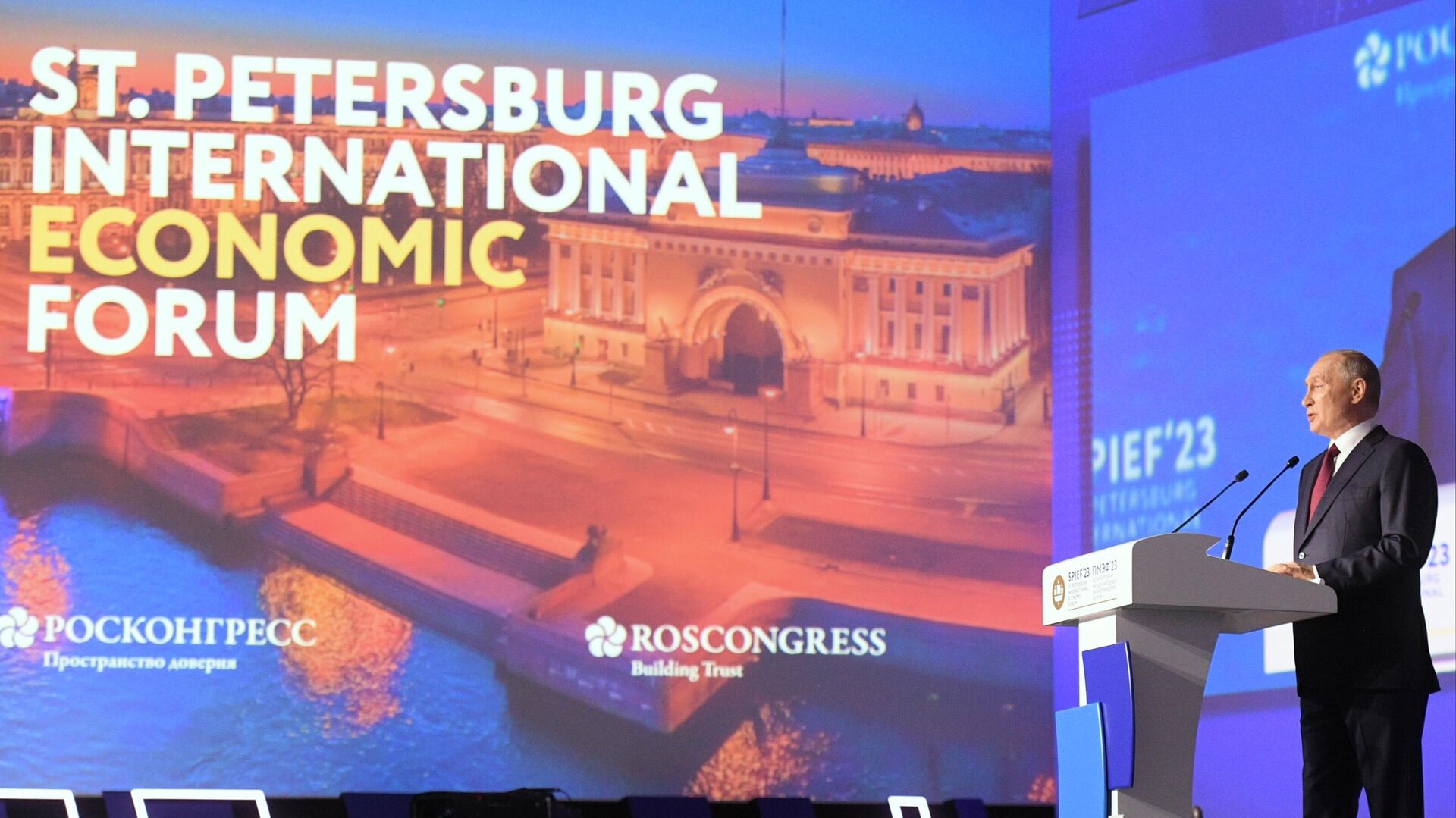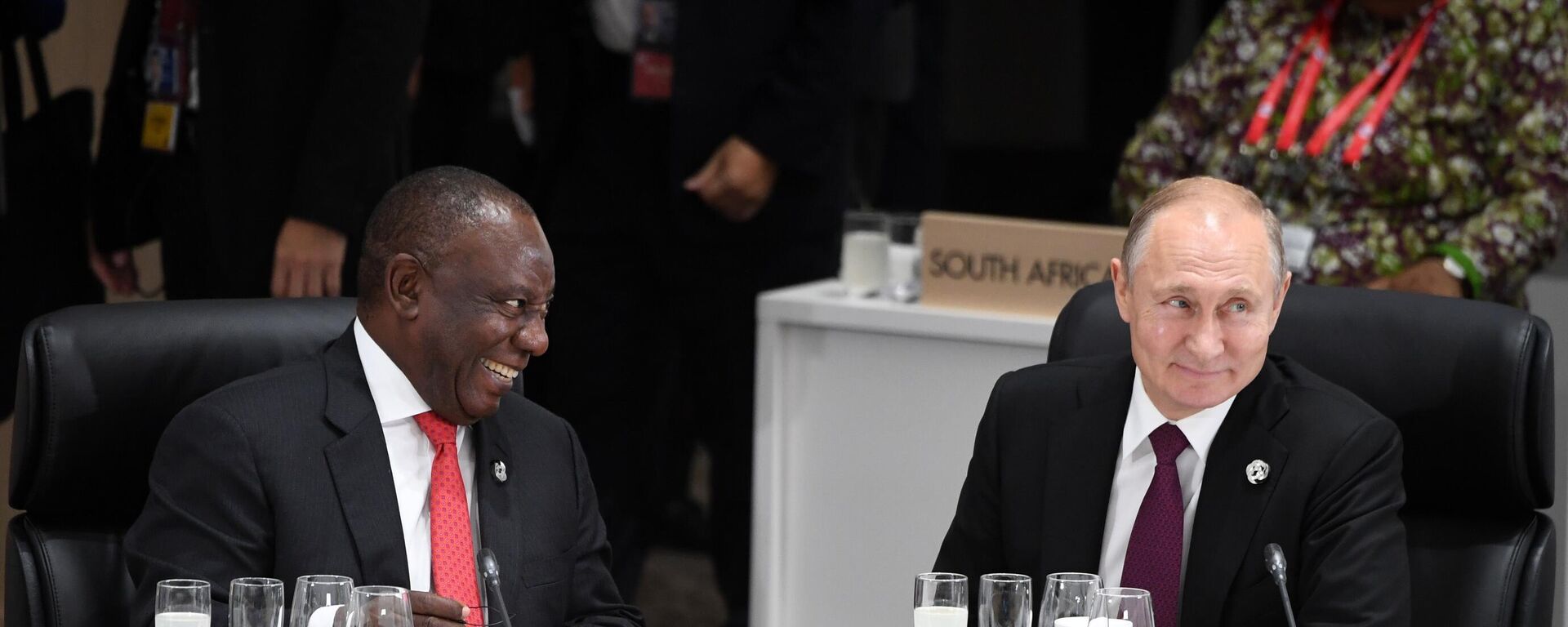Sanctions as 'Blessing in Disguise' to Moscow & Africa: Expert on Russia's Alleged Isolation

© Sputnik
/ Subscribe
Longread
Russia's second-largest city is hosting the St. Petersburg International Economic Forum (SPIEF), one of the most prominent gatherings for a wide range of discussions on the Russian economy, its prospects, as well as possibilities for deepening cooperation. The event brought together over 17,000 people from 130 countries.
Sanctions imposed against Russia can be considered a blessing in disguise, as they enabled the nation to open up to new opportunities in terms of development and cooperation, in particular, to enhance collaboration with African states, said Lubinda Haabazoka, Director of the Graduate School of Business of the University of Zambia, in an interview with Sputnik Africa.
"I think the sanctions have been a blessing in disguise to Russia because we've seen Russia develop new partnerships and new products that they're showcasing to the world," Haabazoka said on the sidelines of SPIEF 2023.
Speaking about his impressions from the forum, he highlighted its "huge attendance," with numerous companies being showcased, and delegates from different countries actively participating in discussions. Haabazoka noted that this can't be regarded as economic isolation.
"So I think the isolation is not being felt. We basically see Russia coming out stronger than even before," he stressed.
He stated that in comparison to other Russian expos he'd had an opportunity to participate in, this forum "has really brought about innovation." Haabazoka specifically referred to a new motor vehicle presented by LADA. He also noted that his delegation had met with various businesses that were ready to share their experiences in how to improve the performance of the education sector.
According to Haabazoka, the relationship between African nations and Russia became even stronger when Moscow had to cut ties with European countries in various areas of cooperation. The expert indicated that Russia in particular can support Africa in its efforts to resolve its energy crises.
"Now with Europe gone, it's a blessing to Africa because now we are receiving 100% attention from Russia and we'll be able to sort out our issues in the energy sector," he said.
He stated that the ongoing economic forum helped to "achieve a lot of milestones," while the upcoming Russia-Africa Summit is expected to consolidate these gains. He noted that many African nations, including Zambia, are facing "huge pressure from the USA and Europe not to attend this summit"; some of them have been threatened with sanctions.
However, he underlined that Zambians stand with Russia, recalling that the USSR was the first state to recognize Zambia as an independent country and establish diplomatic ties. Haabazoka expressed his hope that Zambia and Russia will be able to enhance cooperation, specifically in the education sector.
As of now, the countries already have "a lot of exchanges in the area of education." He further elaborated that his country is one of a few that are "enjoying Russian scholarships," with over 150 students coming to study in Russia annually.
"I think all Western countries put together do not give more than even 50 scholarships to Zambia, but Russia giving 150, this is quite unprecedented," he noted.
African Peace Mission as 'Slap in the Western Face'
The expert also touched upon the topic of the peace initiative introduced by African nations to visit Kiev and Moscow in a bid to come up with viable solutions to the conflict in Ukraine. According to Haabazoka, the African peace mission highlights the inability of the West to mediate and put an end to hostilities. Instead of trying to ensure peace and stability, he stressed, the US and Europe are actively participating in the conflict by providing weapons to Kiev.
"So the moving in of Africa, I think, should be received as a slap in the Western face to say: 'you have been declared by Africa as not being able to mediate,'" he stated.
He emphasized that African countries "understand the conflict from each angle," and are seeking to bring about peace that will be in the interest of both sides - Russians and Ukrainians.
Speaking about the domination of the US dollar in the global financial system, he reiterated that the latter is not designed for the benefit of developing countries. Therefore, the best decision for them would be "to do away with the dollar, to diversify into dealing with other countries." As an alternative to the dollar, he in particular named a reserve currency proposed by the BRICS group.
He explained that the system, in which a country can sanction another one and illegally deprive it of its financial recourses "just because you are not agreeing on an ideology," is wrong. The current conflict revealed the injustices existing within international relations.
"So these sanctions against Russia and this crisis is a blessing to Africa because it has woken up the world to know what is really happening, that the current international monetary system was not built for the developing nations," he concluded.


